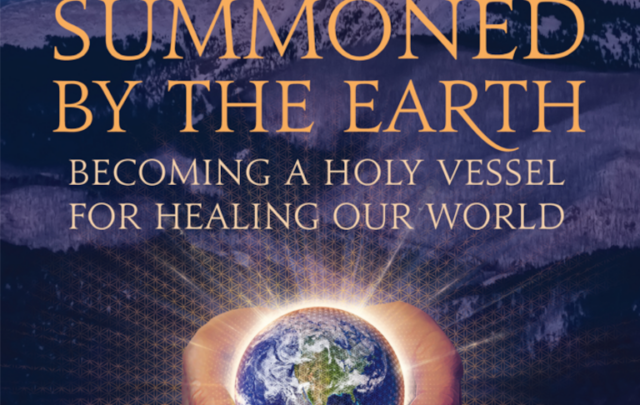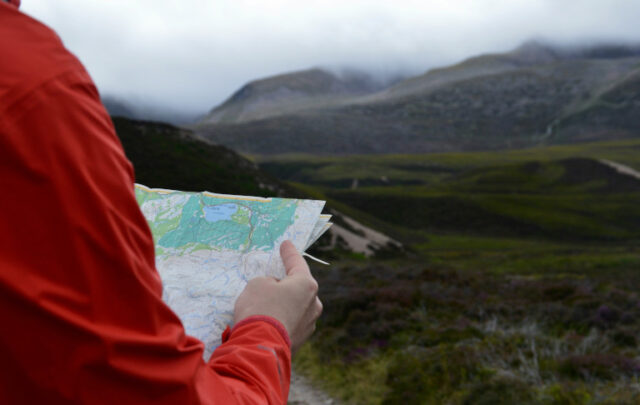We invite you to join us in our discussion on Peak Oil education – email education@aspousa.org to participate.
Something truly remarkable is happening in a thousand places all over the world. It is happening in classrooms – university graduate classrooms and Montessori kindergartens, in formal learning sites at venerable institutions and in newer educational sites such as distance learning programs and in impromptu classrooms put together by churches, book clubs and after school programs. It is happening across disciplines – in classrooms teaching hard sciences, of course, but also in the arts, through the lens of history, in writing and business classes. Engineers and poets, philosophers and economists, undergrads and sixth graders – all of them are learning about Peak Oil.
It is hard to imagine how radical this change is – and how fast it is growing. When we began teaching these issues, around the turn of the last millennium, we knew few people who had even heard of Peak Oil or understood the mechanics of depletion. Now it would be a rare college that doesn’t offer a course that addresses these issues at least in some measure, and they have begun to penetrate to younger and younger audiences. Older and continuing education audiences are also taking a variety of courses that address these issues – and demand to study them is growing.
While the vast majority of people may not yet understand Peak Oil issues, the cumulative effect of offering the knowledge that we cannot go on as we have been is enormous. Like many disciplines that emerged under pressure of new worldviews, whether computer science or women’s studies, it is presently still self-organized, and most of us working on these issues are outside of our fields in some measure – we may have been trained in geology, but the political and economic implications of our geology stretches us in new directions. Or perhaps we are struggling to catch up with the mathematics, but are intimately familiar with the historical experience of societies pushed into contraction, and how those histories might play out in our future.
For nearly a decade, we have been teaching Peak Oil and related issues. Like thousands of teachers around the world, we have put together curricula, worked with students to overcome misconceptions, refined our teaching and searched through journals and websites for new ways of presenting the fundamental truth that the resource base that has enabled the world we live in is depleting rapidly.
Like most of the thousands of teachers who do this work, we are working in part out of our own primary disciplines, inventing frameworks for new ideas as we go along, and working in comparative isolation. While our colleagues in other fields have the benefit of idea sharing, collaborative teaching with many fellows who have at least broad familiarity with the framework of their area of expertise, most of us doing Peak Oil education at every level find ourselves with only a few nearby colleagues to work with, with no formal support from departments that may be led by people who themselves don’t grasp the issues. The larger field that explores the implications of depletion for the world, and its intersection with related environmental crises is still emerging – indeed, all of us teaching these issues are creating it.
Over the years of teaching these issues, Eric through the lens of environmental physics and astrophysics, Sharon through rhetoric, critical thinking, writing, history and her own self-designed courses, we have noted some fundamental preconceptions that act as barriers to student comprehension, two of which we’ll discuss here, since they seem most fundamental, and most easily addressed across disciplines.
The first is what Sharon has dubbed “The Klingons/Cylons dilemma” (and framing it that way tends to help students grasp the issue). The choices offered up by our culture have never included the conceiving of a middle space between technological utopia where things keep getting better, bigger and more resource intensive, and apocalypse. Thus, when students are confronted by the hard science of climate change and depletion they tend to leap immediately to apocalyptic scenarios – either becoming depressed or accusing the teacher of offering no hope. The problem here is not one of presentation – their very failure to grasp this middle space has made clear to us how much of the teacher’s job initially is simply establishing the existence of a category that is neither fantasy nor certain doom.
The development of that intellectual space and the ability of students to imagine it – both the numbers that would support it and the way of life that it would enable — is something that can be worked on across disciplines. Economic historians, for example, can help students grasp just how recently it was that we lived on a small fraction of our present resource base. Artists can work on the imagination of that world – just as artists and writers of all kinds have spent so much time reinforcing the Klingon-Cylon paradigm by imagining mostly utopian and apocalyptic futures. And so on, across many disciplines. What kind of medical education emerges when you imagine a world where optimization of resources is central? What kind of theology does one create in such a world? What will the roles of women and minorities be – and how can we shape them to optimize justice? The questions and the possible answers are both fascinating and limitless.
Both of us find that students (and indeed nearly everyone) also have radically inflated assumptions about the merits of renewable energies, and no implicit grasp of EROEI, either as a concept or of its mathematics. This cannot be chalked up only to poor mathematical education (although it would only be helpful to have a population where everyone understands calculus, if we can’t express our ideas without higher mathematics, the movement to address Peak Oil is doomed) – it is the very concept of energy return over investment that most students have not had presented to them. Once students “get” EROEI, they are often excited and astonished that no one ever proposed this to them before.
Again, EROEI concepts are not only the territory of physicists, mathematicians and geologists. The idea that a society with a declining resource base needs to think hard about returns applies across the board. This is a natural concept for business students, and I know more than one historian analyzing collapsed societies through the lens of the return they got from their investments in complexity. Seen through an EROEI-educated lens, the arts, in which human creativity transcends the base materials in which they work, whether the athletic human body (dance, theater), paper and pen (writing), the plastic arts, etc…begin to look awfully good again. Agricultural education is obviously a natural setting as well to begin see the possibilities for wealth of the biological kind that can emerge from an EROEI-educated society.
The value of these and other basic concepts does not begin at the college level. Both simplified EROEI calculations and the conceptual framework that a lower energy life does not mean certain doom are things that could be taught to students at much earlier ages than the college level – once these ideas are intuitive to a critical mass of the population, it becomes much easier to convey them. Indeed, we know many teachers who are attempting to bring these issues up to high school, middle school and even elementary aged students. As homeschoolers to three of our boys, ranging in age from nine to five, we have found that the basic intellectual grounding of these concepts is accessible as soon as you master single digit arithmetic, in the case of EROEI, or as soon as you can begin logic exercise like “Well, you could eat the cookie or give it to your friend if you only have one cookie…but what’s a third choice? What else could you do?”
The biggest difficulty for most of us who teach these issues – and we know many others working in many fields and across disciplines and with students of all ages – is that so many of us are operating in isolation, attempting to invent something that does not wholly exist yet. That so many people are doing so admirable a job is remarkable – but it also doesn’t have to be this way.
The same professional supports that teachers of all kinds have in teaching other issues need to be available to those of us teaching Peak Oil and its sister issues. Conferences, internet discussions and professional organizations, journals and eventually, programs and departmental support are all a logical end-point of the emergence of an interdisciplinary understanding of where we are going.
ASPO-USA has been at the forefront of Peak Oil education since its founding. Now ASPO-USA wants to take the next step, bringing together Peak Oil educators – and student leaders doing peer education as well — to talk about the emergent discipline of Peak Oil and Resource studies. We can share materials, collaborate on projects, consider what works and what doesn’t, share ideas and begin to bring to the next level what we have been creating independently. As our first steps in this critical work, ASPO-USA is asking educator and student leaders of all kinds to email us at education@aspousa.org and join a discussion list on the emergent discipline of Peak Oil studies – to share their experiences, and to provide the larger community with more information about who is teaching what where, so that we can begin to organize and expand.
Next, at our annual conference in Washington DC, ASPO-USA will sponsor a workshop day on Saturday November 5 for teachers and student leaders to come to Washington and begin to pull together. You will have the opportunity to draw on ASPO-USA’s community of Peak Oil experts, and meet hundreds of other people working on the same issues to share knowledge and enhance your teaching. In order to encourage teachers and students, there will be no cost for the Saturday programs, which we hope will draw in 500 students and teachers in a wide range of areas and disciplines. Come to Washington, and change the face of education!
More information will be available both at the ASPO-USA website and also through the mailing list discussions – please do join us!
Eric Woods has a Ph.d in Astrophysics and teaches Astrophysics and Environmental Physics at SUNY Albany. Sharon Astyk is a writer, teacher and science blogger (www.scienceblogs.com/casaubonsbook) and a member of the Board of Directors of ASPO-USA. When not teaching people about peak oil, they farm and homeschool their sons together.





